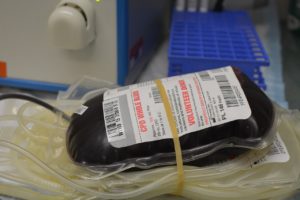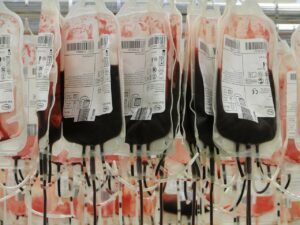Immune Thrombocytopenic Purpura
What is immune thrombocytopenic purpura?
Immune thrombocytopenic purpura (ITP) is a blood disorder that is characterized by low numbers of platelets in the blood. In this condition, the immune system reacts against platelets, destroying them and decreasing the overall amount.
There are two forms of this condition: acute thrombocytopenic purpura and chronic thrombocytopenic purpura. The former typically impacts children and resolves itself within a few weeks, while the latter sees symptoms last anywhere from six months to a lifetime.
What are the symptoms of immune thrombocytopenic purpura?
A low platelet count is a major sign of ITP; affected individuals see platelet counts of under 100,000. A normal body sees counts from 150,000 to 450,000. Other symptoms include:
- Nosebleeds
- Blood in vomit, urine, or stool
- Small red dots under the skin
- Heavy menstruation
- Easy bruising
- Bleeding in the head
As platelets are responsible for clotting, it is necessary for affected individuals to seek help if they experience an injury that will not stop bleeding.
What causes immune thrombocytopenic purpura?
The body stimulates the immune system to attack platelets; in most cases there is an antibody production against the platelets. The immune system can do this for a myriad of reasons, such as certain medications that one takes, pregnancy, infection, low-grade leukemias and lymphomas, and immune disorders. In some cases, the cause is unknown.
How is immune thrombocytopenic purpura diagnosed?
Doctors will first ask for a complete medical history, followed by a physical exam. They may also utilize a complete blood count, blood and urine tests, or a bone marrow aspiration.
What are the treatments for immune thrombocytopenic purpura?
Doctors will individualize a treatment plan for each patient depending on their age, overall health, severity, and opinions. The two most common treatment options are steroids and intravenous gamma globulin (IVGG). Other options include Rh immune globulin, splenectomy, platelet transfusion, N-plate, Rituxan, Promacta, and lifestyle changes. If the cause is known, they will treat that to resolve symptoms.
Where can I find out more about immune thrombocytopenic purpura?
Immune Thrombocytopenic Purpura Articles

Hear Hannah’s Story and Join a Walk to Raise Awareness About Immune Thrombocytopenic Purpura (ITP)


Promising Research Results from the 64th ASH Annual Meeting

Female Police Detective Shares Near Death Experience from Immune Thrombocytopenia

Mandy Moore Shares Immune Thrombocytopenic Purpura (ITP) Diagnosis

Immunoglobulin Saved Her Life and Gave Life to Her Three Children

HMPL-523 Earns Breakthrough Therapy Designation in China for ITP




